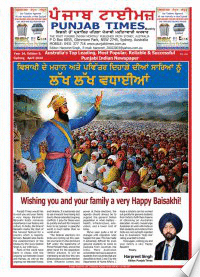My Mother’s People: What it is like to be a man in a matrilineal society
A Khasi woman and her son in a small local restaurant in Meghalaya (Source: Getty Images)
In some years, when the day of his own wedding arrives, lab technician Jamesteward Khongsngi hopes things will happen in the conventional way. He imagines that a kongor, a cohort of his maternal male cousins and uncles, will feast on plain rice and boiled meat sent by his bride’s family. After the church ceremony, they will accompany him to his wife’s home, where his mother-in-law will smear some cooking oil on his forehead as a sign of acceptance, andwhere he will stay until the newlyweds decide to settle in a house of their own, or, if his bride is the youngest daughter in her family, they would stay at his in-laws’ home for as long as they are married.
In the matrilineal communities of Meghalaya, custom dictates the husband moves into his wife’s home, their children take her surname, and women (particularly a family’s youngest daughter, known as khadduh, upon whom it falls to be the parents’ caretaker) inherit the family property.
As a Khasi tribal whose family moved to Shillong from the Cherrapunji region two generations ago, Khongsngi, 34, is proud to belong to a women-centred society.
“Being a man in a matrilineal society does not mean that I am bereft of any role or authority, or that my freedom and choices are controlled in a way that is similar to women in patriarchal societies,” he says. He shares the same mobility and freedom to socialise as the women in his community, and can choose his life partner in a society where most matrimonial unions stem from mutual attraction.
Traditional courtship among young Khasis is governed by the code of rang tyrwa. “If a boy likes a girl, he makes the first move. If she reciprocates, he is free to pursue the relationship although he must inform his maternal uncle, ideally, the eldest. If the girl declines, then the boy ought not pursue her any further,” says Khongsngi. And as the eldest of six siblings, four of them female, Khongsngi will play an important role in the lives of his sisters and their families. When his sisters marry and have children, Khongsngi’s will become the eldest maternal uncle, somebody who for the most part, has the final word on decisions that affect the family.
But while women in matrilineal communities have an edge over women from other communities, areas of social governance and politics remain male-dominated — indicative of how a local saying “If a hen crows, doomsday is near”, has taken root in Khasi society as well.
Although some changes are taking place in the more urbanised localities today, traditionallly, women do not participate in meetings called by the Rangbashnongs, the headmen of each hamlet or locality, and, therefore, have little say in matters of governance. This has more or less remained the same when it comes to electoral politics. Even today there are no more than four women MLAs in a state legislature of 60 members.
What is greater cause for concern in the state are the rising incidents of domestic violence and rape in the matrilineal communities. Since 2002, rape cases have increased more than three-fold through the decade.
Rikerwanka Rinkethiang volunteers to help out several other young women in a local organisation called the Faith Foundation, addressing issues of sexual and child abuse. According to them, these crime graphs show that Meghalaya is likely to head in the same direction as patriarchal communities across India — if one were to leave out the lineage system.“We used to think that this is not something that happens in our society. In our kind of system, women have been considered to be sacred,” she says.
Recently, there has emerged a fear in some sections of the local population, of being swamped, demographically, by larger communities in the peripheries and beyond the border.
Keith Pariat heads the 25-year-old Synkhong Rympai Thymmai (SRT), the most visible among the groups that want to tweak the matrilineal system — in favour of men. His organisation believes that the native male lacks a sense of responsibility because he has no customary claim over the welfare of his children (since they take their mother’s surname, they belong to the mother’s clan) and has little rights to lay claim on inheritance. Pariat believes that the local Khasi male’s way of life is “wayward”, “loose”, making him prone to drug addiction and alcoholism and, eventually, an early demise.
“Khasi women don’t want to marry Khasi men anymore. The men are a risk to their future,” says Pariat. Groups such as the SRT, while pushing for children to take on their father’s surname instead of their mother’s, are not pushing for family inheritances to be bestowed on the sons, like in most patrilineal societies, but to be equally distributed among all the children.
To be sure, these changes are already taking place among the natives of Meghalaya. In many families, not just the youngest daughter, but other daughters and even sons are increasingly inheriting family property, although locals say daughters usually get a larger share.
Rinkethiang and her husband, Damonlang Pakyntein, 37, have two young daughters. “We are likely to divide whatever property we will have to both our girls as their inheritance,” says Pakyntein. In addition, he would also like them to inherit his contracting business when they come of age. What if he had a son, would he get a share? “Well, the son is supposed to marry and leave the house to stay with his wife,” he says.
An only son, Pakyntein (of the Jaintia tribe which is also matrilineal) married Rinkethiang in 2002 and lived with his wife’s family for a year. What was it like, as a man with a fairly good income from work a contractor, to be a part of a different family than that he was born into?
Pakyntein thinks for a few moments and bursts out laughing. He says, “I became a better Christian”. How so?
“Well, I was never much of a church-goer. But my wife’s family, especially her parents, are devout Christians. So when I started living in their house, I had to adapt to their ways. So I began to attend church frequently,” he says.
Source:: Indian Express





